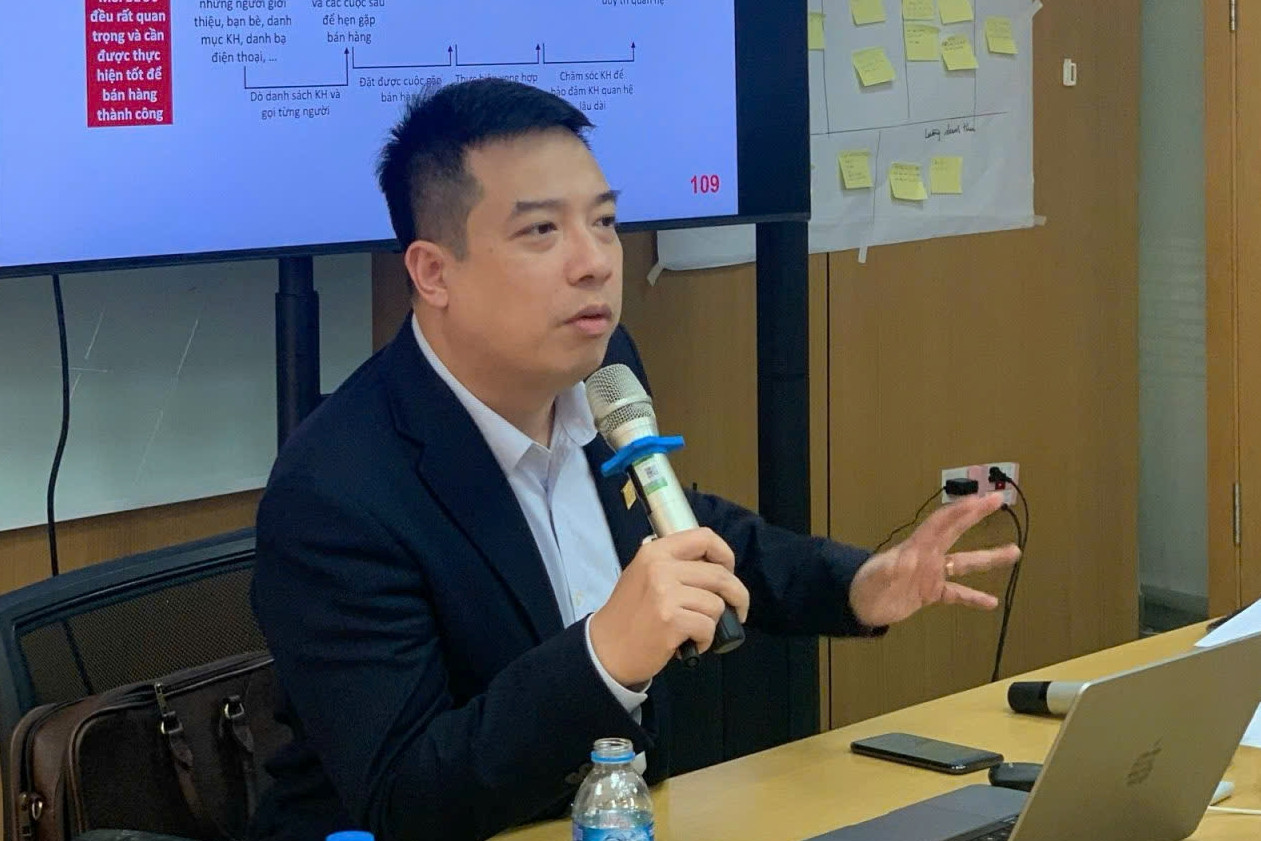
Dung obtained a Master’s degree in Law from the University of Tours and a PhD from the University of Poitiers (France). He stumbled into French by chance, never imagining it would take him so far.
Hailing from Quang Ninh, during a trip to Hanoi, the 14-year-old boy was dazzled by the capital’s vibrancy and determined to stay. With strong academic ability, Dung applied to the High School for the Gifted in Foreign Languages, which admitted students from many different provinces.
And his tough years began. Most classmates were very good at foreign languages. They either began learning French in the first or sixth grades. He was the only student who had not learned any foreign language when entering the class.
For the first two months, Dung consistently scored zeros and risked expulsion. But driven by his desire to stay in Hanoi, he resolved to rethink his learning strategy.
“I told the teacher I really wanted to learn the language, but if I had to take full notes, I’d fall behind. I suggested she let me skip note-taking to focus on listening,” he recalled.
At lunchtime, Dung rewrote the entire lesson from memory, looking up unknown words in a dictionary and borrowing friends’ notes.
Instead of learning French conventionally, he wove it into his life. Each morning while brushing his teeth, he’d mutter simple phrases like “Today I go to school.” If he didn’t know a word, he’d jot it down to check later.
Gradually, he built a habit of thinking directly in French instead of translating from Vietnamese. He began grasping more of what the teacher said, and his French grades improved, albeit slowly.
Midway through grade 10, Dung joined the school’s French competition team.
“On the competition day, I entered the exam room with a completely different feeling from my first day at the school. I wasn’t timid or scared anymore—I genuinely wanted to fight,” Dung recalled.
Outshining many competitors, he won first place in the city’s grade 10 French contest. He went on to claim city-level awards in grade 11 and a national prize in grade 12, which allowed him to earn direct admission to the Foreign Trade University.
“Silence won’t lead to progress”
Dung said he pursues several principles when learning foreign languages. For instance, he never writes down a new word’s meaning in his notebook. The next time he encounters it, if he forgets, he will look it up again.
“It might take time, but before finding the word, I will scan countless others around it, picking up word types and meanings along the way.”
He also believed fear of speaking holds learners back. “At first, I was shy too. Some classmates spoke French fluently, while I stammered every time I opened my mouth,” he recalled.
But he realized if he stayed quiet, he’d never improve his foreign language skills. So he pressured himself by joining every activity possible. Once, his class hosted French guests. He knew he wasn’t good, but he stepped up anyway. He spoke slowly, sometimes with grammar errors, but the French didn’t laugh. They listened patiently and responded. That’s when he understood that he didn’t need to be perfect, he just needed to be brave enough to speak.
Later, at home, he’d talk to the mirror, mutter while brushing his teeth, or chat to himself on the road. Every morning, he’d play French radio for passive listening. From understanding nothing, he slowly picked up words, then guessed meanings, and eventually followed simple conversations.
With writing, the skill many dread most, he practiced daily from basic sentences. “Day one, I wrote: ‘It’s nice today.’ Day two, I expanded: ‘It’s nice today, and I’m happy.’ Gradually, I moved to short paragraphs, then full essays. After six months, I could write a complete essay without fear,” he said.
Years later, when becoming fluent in French and a national prize winner, Dr Hoang Trung Dung admitted that when he arrived in France to study, his skills met just 5 percent of his communication and academic needs. To improve, he sought every chance to chat with native French friends. It took him six months in France to become proficient.
Reflecting on his journey, he believes that language learning doesn’t require innate talent, just persistence and the right method. “Most importantly, don’t treat it as a subject. Live with it,” he said.
Thuy Nga